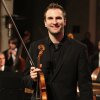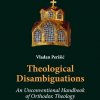On 29 June 2004 more than a dozen Harvard alumni and past fellows met on a riverboat (splav!) on the Danube river in Belgrade, Serbia to establish the Harvard Club of Serbia as a non-profit civic association. Since then we have organized a number of social, educational and recruiting events.
Our members are graduates from Harvard College, the schools of Arts and Sciences, Business, Design, Divinity, Education, JFK School of Government, Law, Medicine and Public Health, Harvard Executive programmes and current Serbian students at Harvard University. They include entrepreuners, leaders in civil society, diplomats, government ministers, journalists, educators and artists.
.Our Mission
The Harvard Club of Serbia is the meeting point for all residents of Serbia and visitors who studied or attended a program at Harvard University (Join the Club). The aim of the club is to serve Harvard alumni throughout Serbia, keep the members in touch with each other and their Alma Mater, and promote values and mission of Harvard University.
Our Purpose
The common purpose of Harvard Clubs is to advance the mutual welfare of Harvard University and alumni by:
- Providing opportunities for alumni, parents of students, and friends of Harvard University to meet and to serve as advocates, articulating the role and direction of the University
- Promoting and elevating the stature of the University within the community through club programming
- Providing opportunities for alumni to remain connected to the University and to serve the University
- Encouraging life-long learning, intellectual enrichment, professional growth, and social interaction through forums of continuing education and development
- Attracting the world’s most talented individuals to Harvard University
We are registered with the Ministry of Human Rights of Serbia as a civic non-profit organization.
Our Partners
The Harvard Club of Serbia has become a member of the American Chamber of Commerce in Serbia and a member of the Fulbright Alumni Association. We also cooperate with the US Embassy in Serbia, the Kokkalis Program for Southeastern Europe of Harvard University, and rely on support from Harvard Alumni Association and other Harvard clubs and programs.




